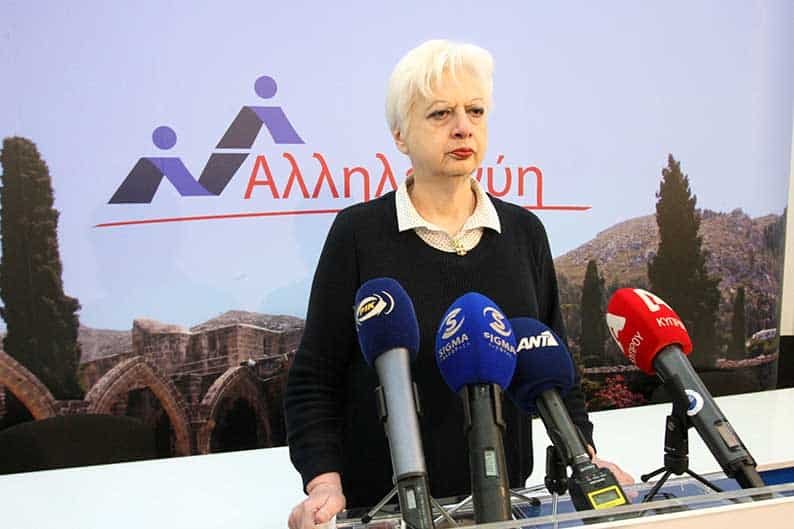After Edek, the Solidarity party on Tuesday threatened to throw a spanner in the state budget, setting conditions in return for their vote on Thursday.
Party head Eleni Theocharous said she had spoken to President Nicos Anastasiades and the Disy chief on the issue of the revised budget.
Theocharous said she expected their replies to the party’s demands, the most important being the suspension of foreclosures until the country had set up courts that would hear the cases of disgruntled borrowers.
“We submitted the proposal three years ago; we resubmitted it three weeks ago (and) we hope they will do something as regards the matter,” Theocharous said.
Her party also asked the central government to prepare a code of conduct regarding loan restructuring.
If their conditions were met, she said, then the party will be positive towards the budget. Solidarity has two seats in parliament.
Theocharous also expressed her annoyance because the government opted first to have meetings with the parties that created trouble while Solidarity had requested to see the president five weeks ago.
The government has been forced to go cap in hand to smaller parties to get a revised budget through, despite warnings of dire consequences if this bill too was rejected.
Until Tuesday, Edek was still unsatisfied with the demands the government had agreed to but following a meeting at the presidential palace, chairman Marinos Sizopoulos said they were a step closer to a budget deal.
The party’s key demand is a court to handle cases relating to foreclosures and excessive bank charges.
Not long after the meeting, House legal affairs committee chairman Giorgos Georgiou announced that on Friday the committee will examine on an amendment to the courts law that provides for courts to be granted special authority to hear cases relating to disagreements between banks and borrowers, the sale of mortgaged property used as collateral, and the acquisition of bank bonds between 2008 and 2013.
The current predicament emerged after the first bill was rejected in December when opposition Diko voted against because the government refused to allow the auditor-general to probe the island’s controversial citizenships for investment programme.
Diko had voted for state budgets throughout the current administration’s term despite disagreement on other issues.
The government accused the party of blackmail for using a matter that was not related to the budget as leverage.







Click here to change your cookie preferences